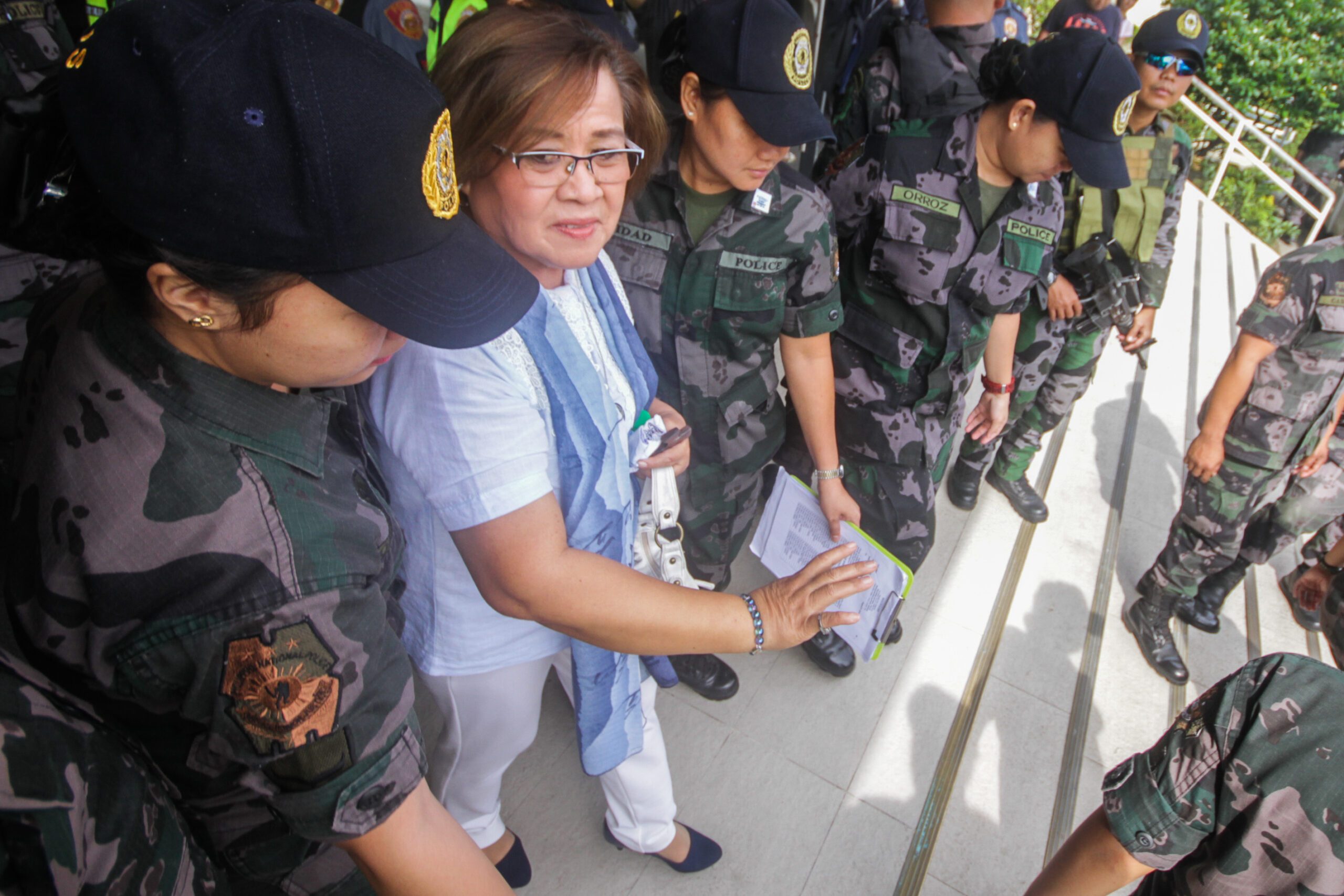SUMMARY
This is AI generated summarization, which may have errors. For context, always refer to the full article.

MANILA, Philippines (UPDATED) – The United States Senate on Thursday, January 9, approved a resolution that seeks sanctions against Philippine officials linked to the detention of opposition Senator Leila de Lima and to alleged extrajudicial killings under the Duterte administration.
Senate Resolution 142, which was “agreed” to or adopted, invokes the Global Magnitsky Act, an American law that gives the US executive branch the power to impose visa and travel restrictions as well as financial sanctions on human rights violators anywhere in the world. (READ: Why the Global Magnitsky Act matters to the Philippines)
Information from the United States Congress’ official website showed the resolution was “agreed to in Senate with an amendment and an amended preamble by voice vote.”
In the case of the Philippines, those covered by Magnitsky sanctions in the resolution include:
- government officials and security forces responsible for extrajudicial killings
- government officials responsible for De Lima’s arrest and prolonged detention
The resolution, authored by US Democrat Senator Edward Markey (Massachusetts), also denounces the “harassment, arrest, and unjustified judicial proceedings” against media, particularly Rappler and its chief executive officer Maria Ressa.
What happens next? With the resolution adopted by the US Senate, President Donald Trump will have 120 days to determine if Philippine officials in question were responsible for human rights violations against De Lima and victims of extrajudicial killings.
At the end of that period, Trump will need to submit either a classified or unclassified report to the US Senate chairperson and ranking member of the committee who submitted the request for him to look into the violations.
The report will include information on whether Trump “imposed or intends to impose sanctions with respect to the person.”
An updated version of the measure likewise called on Trump to ensure assistance provided by the US to the Philippine National Police is “fully consistent with the human rights conditions” in its Arms Export Control Act and Foreign Assistance Act of 1961.
The resolution also called on the Philippine government to “recognize the importance” of human rights defenders and allow them to operate “without fear of reprisal.” In the same vein, US lawmakers urged the Duterte administration to “guarantee the right to the freedom of the press” and to drop all charges against Rappler and Ressa.
What is the Philippines’ response? Reacting to the newly passed resolution, Senate President Vicente Sotto III said American lawmakers are “misinformed.”
“I’d like to think they are misinformed because it’s an affront to our justice system. It appears to be a violation of their Constitution re: the bill of attainder,” Sotto said on Thursday.
The adoption of the US Senate resolution is the latest move of American lawmakers to exact accountability for human rights violations seen under the Duterte administration.
Trump earlier signed the US 2020 budget, which includes a provision sanctioning Philippine officials found to be involved in De Lima’s “wrongful imprisonment.” These officials would be barred from entering the US.
Philippine Foreign Secretary Teodoro Locsin Jr vowed the country would not give up its authority to try De Lima in court, echoing other Philippine officials in saying that the senator’s detention is lawful.
Justice Secretary Menardo Guevarra also said he was shocked and offended by Washington’s move to “interfere” with Manila’s judicial process.
Philippine officials who will be subject to Magnitsky sanctions will be among the ranks of officials known to have committed gross human rights violations around the world.
These include 17 individuals linked to the brutal murder of Saudi Arabian journalist Jamal Khashoggi, members of Myanmar’s security forces behind the ethnic cleansing in Rakhine State, and Iraqi officials involved in the killing of peaceful protesters. – Rappler.com
Add a comment
How does this make you feel?
There are no comments yet. Add your comment to start the conversation.